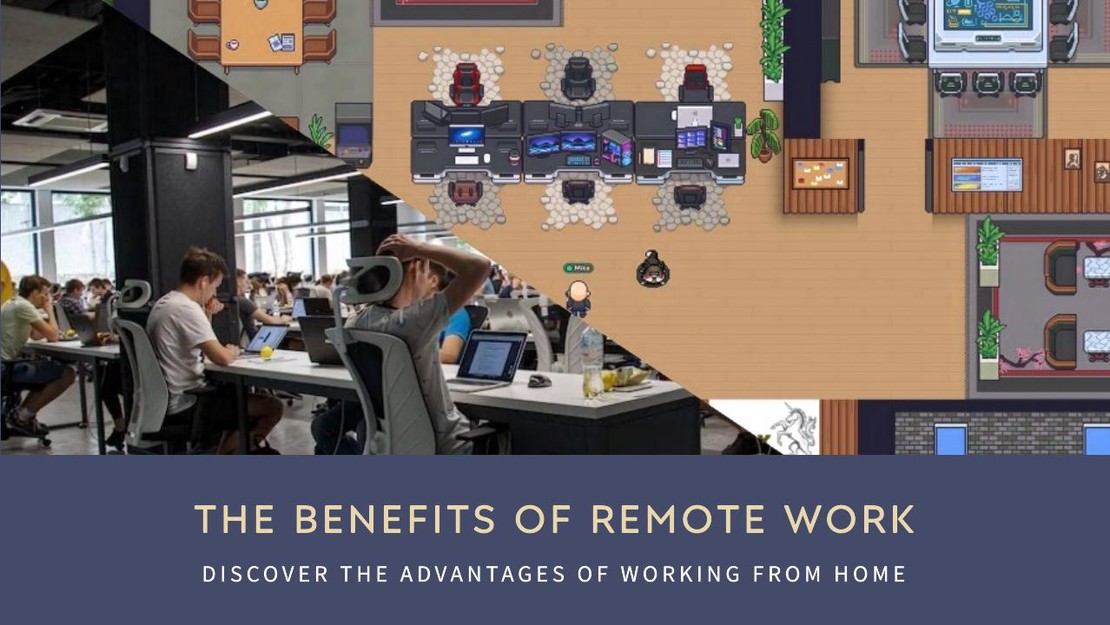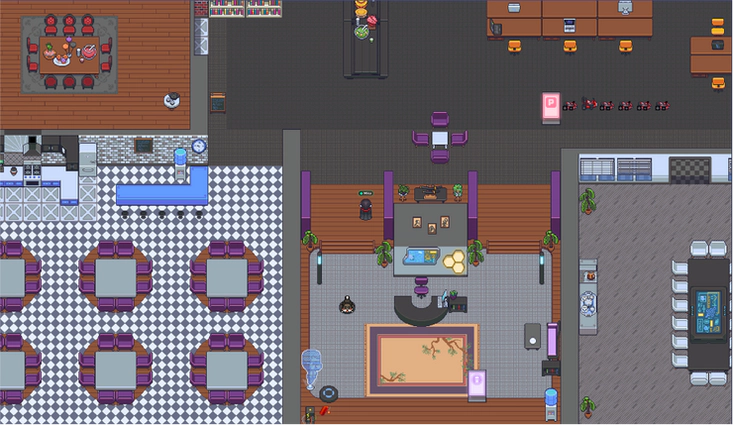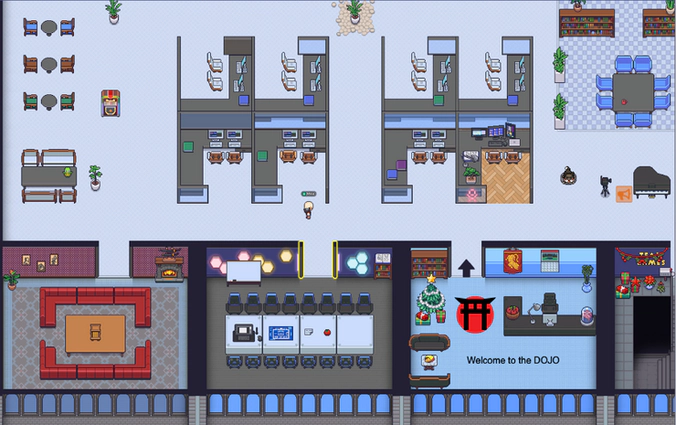Visionary Digital Evolution Strategist
Rooted in Formula 1 excellence, with over 30 years in IT starting as a child in the 1980s, …

In today’s rapidly evolving work landscape, the choice between remote, on-site, or hybrid work models has become pivotal for companies seeking success in an increasingly demanding market. As we navigate the complexity of this decision-making process, the benefits of a remote-first approach stand out, particularly in specialized fields like IT software development, where remote coaching and DevOps/Agile transformation services can really boost the success rate of a business’s transformation.
It has been our company’s belief since before COVID-19, when only a few innovators were experimenting with it. Yet, with an emerging return to the old classic model of being on-site or hybrid, we have data to say how these “HR concerns” are, rather than an employees’ whim, the key for moving teams and organizations beyond mediocracy to elite performers.
Adopting a remote, on-site, or hybrid work model holds far-reaching implications, especially in specialized fields like IT software development. As the professional landscape undergoes a profound perpetual transformation, the choice between remote, on-site, or hybrid work models emerges as a critical determinant of a company’s success. The key takeaway from our rich data collection activity on more than 15.000 developers involved in our company consultancy services to forge elite companies via Agile, DevOps, and SW Craftsmanship is clear: remote work outshines mere convenience in the IT field. Remote work stands as the fundamental key to unlocking exceptional success by fostering efficiency and focus, improvements in effective collaboration, a larger pool of top-tier talent, promoting agile adaptability, creating psychological safety necessary to embark on the transformative journey, and prioritizing the well-being of employees, reducing burnout and converting the average one hour commuting time in newly discovered time to grow, learn, and improve.
In this article, we will dive deep into why remote working surpasses the limitations of on-site and hybrid models in the pursuit of excellence.
The nature of technical and DevOps coaching involves close collaboration with developers who should spend most of their working time coding. Remote collaboration tools and integrated development environments (IDEs) have evolved to enhance the quality of pair and mob programming, promoting efficiency and minimizing the labor health risks associated with suboptimal collaboration setups (like being with bad posture staring at a small screen in the office fighting for the control of the keyboard and mouse). The shift toward remote work aligns with the latest research 1 2 and the industry’s best practices for distributed teamwork and developer productivity. This new model of doing pair/mob programming from your own perfectly configured laptop is known as remote pair programming or remote MOB-programming.
Due to overcrowded noise environments with cumbersome private space booking systems, traditional office environments often fail to provide the necessary privacy and focus for coaching sessions. When the time comes to bring a whole team to a training, guild, or dojo session, the problem becomes nearly unmanageable. The rise of remote work allows coaches to create a safe virtual space for open discussions, free from the distractions and lack of privacy associated with shared office spaces. These aspects are crucial for fostering proper interactions and safe, professional development in technical coaching. Moreover, remote working on the coachees’ side improves noise resilience, with consequent augmented focus, and productivity.
While offering some apparent advantages in control and monitoring, the on-site and hybrid models present challenges with limited local talents. On the other hand, a remote-first approach opens the door to a vast pool of talent, allowing companies to hire the most skilled professionals without geographical constraints. It ensures access to top-tier expertise and offers potential cost savings (remote people have cheaper rates), contributing to a more streamlined and effective management structure.
Agile and DevOps coaching thrive on adaptability and efficiency, demanding a work environment that mirrors these principles. While remote work offers the flexibility crucial for accommodating diverse team schedules and fostering a proper agile software development environment, the challenges within traditional office setups are noteworthy, brilliantly illustrated by one of the most significant players in the Agile Way of Working, Spotify, in this blog post on “Dynamic workplaces” highlighting the astronomical costs of embracing it effectively.
As we delve into the intricacies of Agile and DevOps coaching, it becomes apparent that the shift to virtual offices isn’t just a technological trend but a strategic necessity for businesses aspiring to embrace and truly excel in the market.
A remote-first approach supports a healthier work-life balance, addressing stress, avoiding commuting, and overall well-being concerns. By prioritizing the comfort and individual preferences of coaches and coachees, remote work fosters job satisfaction and ultimately contributes to higher productivity. As per the 2023 Gallup report 3, the engagement problem costs more than $9 trillion of missing productivity in the global economy. Well-being started to become more than a hippie’s illusion. As described by psychologist Andre Martin in the best seller “Wrong Fit, Right Fit,” it’s the key to overcoming great resignation and raising employee engagement from the lowest level of 23% recorded in humankind’s history in 2023. Moreover, remote working reduces the cost and risk of commuting, moves companies toward a zero-emission policy, and contributes to creating a better place where to live for us and our future generations.
In the quest for a successful remote work model, gamification and virtual office technology integration emerge as a transformative force. Conventional tools like Webex, Zoom, Teams, and Slack have undeniably facilitated asynchronous collaboration. Yet, they fail to replicate the nuanced interactions of real-life engagement.
Years of evolution in Massively Multiplayer Online Role-Playing Games (MMORPG) have showcased the potential of virtual platforms to create a more natural and effective means of global connection. These platforms seamlessly blend real-life social behaviors with the innovation of virtual avatars, allowing millions of users worldwide to collaborate effortlessly.
The emerging technology of virtual office platforms, including Gather Town, Sococo, Kumospace, and others, represents the pinnacle of this evolution. Inspired by the fluidity and connectivity of MMORPGs, these platforms transcend the physical limitations of being in person. They introduce a novel way to engage in real-time human interaction, fostering a sense of presence and connectivity without the constraints of geographical boundaries.
In essence, these virtual office tools are not just about replicating the office experience but about redefining it. By combining the familiarity of real-world social dynamics with the ease of virtual avatars, they create a virtual office environment that transcends the limitations imposed by physical presence. As we explore the benefits of remote work, the incorporation of gamification and virtual office technology stands out as a catalyst for a more dynamic, inclusive, and innovative approach to collaboration.
The financial implications of the work model extend beyond collaboration dynamics, playing a pivotal role in shaping a company’s success. A stark contrast emerges when comparing the costs associated with maintaining a physical venue in a bustling city— akin to the capital of a European country—and the lean, cost-effective nature of virtual offices.
Consider an enterprise with only 500 employees, necessitating a fully dedicated venue in a city center. The expenses associated with rent, maintenance, utilities, and the general upkeep of a physical office space can be astronomical. In major European capitals, real estate prices and operational costs skyrocket, making a sizable dent in the company’s budget. This traditional approach not only drains financial resources but also limits the allocation of funds to areas crucial for innovation and employee well-being.
In stark contrast, the emergence of virtual office platforms provides a paradigm shift in cost efficiency. These platforms, designed to recreate the collaborative office experience without the need for a physical space, come at a fraction of the cost. For instance, enterprise-grade virtual office subscriptions often cost less than $7 per month per employee.
In the case of our 500-employee enterprise, adopting a virtual office model could result in substantial savings. The lean cost structure of virtual offices allows companies to redirect funds toward strategic investments, talent development, and technological advancements. This ensures financial resilience and positions the company to thrive in a rapidly evolving business landscape.
As we explore the multifaceted advantages of remote work, the financial argument favoring virtual offices stands out prominently. The lean, cost-effective nature of virtual offices not only aligns with the evolving needs of businesses but also serves as a cornerstone for unlocking a new era of financial prudence and strategic resource allocation.
In conclusion, the reason why we choose to work remotely as a DevOps/Agile consultancy and coaching company extends beyond convenience; it is the key to unlocking the success of our customers in specialized domains like IT software development leveraging coaching, e-training, dojo and Agile/DevOps transformation services. By embracing a remote-first coaching mindset, companies can create a collaborative, efficient, and adaptable work environment that meets industry standards and sets the stage for continued innovation and growth.
To showcase the difference in how we work, and our working ethic and business conduct guidelines, we like to provide you a few hints on how we created our agile way of working office and a few setup of our dojos as well. As a remote-first company we configured all the commodity necessary for our working environment integrating everything at a finger’s grasp. Our setup based on Google for Business, GitHub, Miro, Slack, Jira Ecosystem, is fully integrated into GatherTown. From our virtual-desk we have all the tools we need, and in the shared spaces we have configured all the shortcut to keep the communication in real-time for live events, and async to embrace a follow the sun model, where timezone isn’t an obstacle but a tool to provide our customer with beyond the canonical working hours a normal consultant can provide you in a standard corporate office.

And these are some of our dojos:



Visionary Digital Evolution Strategist
Rooted in Formula 1 excellence, with over 30 years in IT starting as a child in the 1980s, …